Cage Dunn's Blog, page 85
November 7, 2016
An Idea
 I have a draft outline for an anthology which currently has twenty (20!) idea slots. Of those 20 idea slots (all on the one theme, mind you), there are three complete drafts and 17 outlines (although I may take one out because it is similar to, or could be incorporated into, another story, and another one I’m not sure I can do).
I have a draft outline for an anthology which currently has twenty (20!) idea slots. Of those 20 idea slots (all on the one theme, mind you), there are three complete drafts and 17 outlines (although I may take one out because it is similar to, or could be incorporated into, another story, and another one I’m not sure I can do).
The theme for the anthology: The Once Lost.
It refers to the Australian Aboriginal people, and how the world changed for them. There are stories on the following ideas:
Min-min lights (they are real, they exist all over the north of Australia);
‘Spexion – No one knows when to expect the Spexion, so they have hidey places where the kids run to on a specific signal – a whistle unlike any other sound. Story: signal! Run, hide. The consequences.
Path of Death – the full ritual to say goodbye, but what can be shown, and what can be felt?
White Skin, Black Heart – A story of massacre and poison and revenge.
Put That Away! – A little ID tag, folded up and carefully hidden from sight. What does it mean? Two little words: Permit and Aboriginal, have no meaning to the child who sees how her grandmother is treated by the townspeople when things go wrong.
Words of a World – Gone – hears the words of many voices; the meeting places have a sound, a sense of noise felt through the feet and skin; the trading places have a sound – many voices, many languages, many laughs and cries – but the sound of that place only, in the many tongues of the many speakers. So many different languages once. They are less now; fewer words, few speakers lead to less sense of . . . Fewer words, few people who know them, less of the sense of the people in country.
One Footprint – been there in that piece of stone for 40k years, maybe longer. An ancestor – how does she know? – ‘cos she puts her foot in the contours of the solid stone and it fits her foot snugly, leaves no gaps; brings a piece of the story to her song. So she sings it, at that special time, for the young women to hear of how it all came to be.
Ancestor Stone – she was drawn to the land where the red and white sands of the desert meet the sea of the longest wind. She went there first time as short holiday. Stayed longer than intended. Felt something. Went back to work. Couldn’t focus. Made the decision. Quit. Moved to the country that kept her company on the dream trails.
Return to Country – Babaan – in final draft form.
A New Past – The price to be paid for disrespecting the laws of lore, even for a kid born in the city.
Going Home, Turning Back – the title says all I want to say at the moment.
Speak to Naji, Dreams Come – the title says all I want to say at the moment.
Country Gonna Bite Ya – the tagalong kid, and the bees.
Return to Reality – Going Home, Going Back – Lost – finding a family history: shallow desecrators, rape and dispossession – on both sides; shame or . . . She stands at the gateway to the burial site, turns away, won’t go in. A man stands there – fear response – he looks at her with eyes so like her own. quizzical, a recognition of her as she of him? ‘I know you, know your mother and brothers and sisters.’ Does she want to do this? Feel this? An emptiness. No response. Why did they give her up? Why did they give up looking for her? The anger isn’t there anymore; now it’s nothing, no feeling.
Red Sand, Red Rocks, Red Story – the paintings glow at night; the slight depression becomes a waterhole when it rains; the stone becomes a story-board when the moon is full at the longest night of the year. The story of blood and birth; of journeys from child to adult, from adult to lore-teller. The story of red sand that moves red blood through red rocks, to become the red story of the people of the red hands.
Ocean Spirit – Ocean as lungs of the world, biggest Naji – cranky at infestation of filthy, greedy, cruel, dirty pests on the skin of her world. Seeks a way to kill off the overpopulation of this pest.
Not Belong Black, Not Belong White – A blend of worlds – Where: at school, rural area. Skin is white, but the real whites know she’s not one of them; call her black-fella (and worse). The blacks call her whitey (and worse). Ostracised in the borders between the shadows of not-white, not black. Goes away to the city, finds the same, but different. Bullying, difference as an excuse to exclude; where it all comes from, how it affects.
Salt Water People – They bring the kids back, the troubled ones, and show them the trails that lead to a true life within the skin of who they are, where they from, where they go.
Paint a Dream – final draft completed.
There are two others, not yet decided whether they will become part of this anthology yet.
Stay tuned (expected date for completion: early 2017, maybe Feb or March).


November 5, 2016
Knocked out of the park . . . .
Hit for six – bowled over – knocked down – flattened – by a toothache!! Is that all hyperbole? No, not when you have the tooth that can’t stand the touch of air, a bit of pressure, anything hot or cold or anywhere in between.
And, of course, it’s a weekend – not a dentist in sight, all answering machines (unless you want to travel a zillion miles to the dental hospital (and I’m not all that sure there is one within a two hour drive).
And, of course, if I sit down at the computer the side of my head begins to thump and pound and crash like heavy surf. And then comes the ‘I’m gonna get you’ pain. It digs in, plants itself in the very bones of your soul, kicks and screams and yells like a tantrum on steroids.
And, of course, if I take the drugs to dull the pain (nothing gets rid of toothache – until the tooth is ripped out), I need to eat something; in order to eat something, I need to open my mouth; if I open my mouth the air gets in and — whack; smacked in the gob by an overpitch.
I’m using all cricket terms here – that’s because we are in cricket season. It’s the unwritten rule that you use the terms of the current sporting season to pepper your hyperbole, isn’t it? Well, it is here, so there you have it.
So, no food, no drugs, no relief. The side of my face and my eye and ear and cheekbone and jaw and neck – pain, suffering, swelling and . . .
How about trying on the distraction method? Nope, didn’t work – there is no level of concentration that can remove the idea of a tooth in agony.
Meditate? Every ten minutes, until the scream can’t remain contained anymore. What else?
Easter (last year, not this year) was the last time this happened. Apparently, it’s going to happen to each tooth as it reaches critical point. An accident, a long time ago, that damaged something that holds the teeth in place – and now, when they come out there’s nothing there to hold a new one in. No screw-ins, no replacements.
For the people who grind their teeth (the people who used to talk or walk or get active in their sleep as kids) are the people who will come to learn of this – if you grind your teeth, do something about it while you’re young! Get the mouthguards so you don’t grind away all night and do damage that’s unfixable. Don’t suffer the pain that I suffer now, only to know that when the tooth comes out and the pain from this one goes away, that the next one is about to wake up and start the whole process over again.
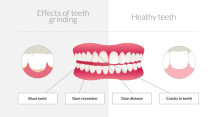
* * *
And that’s my tooth story (the beginning of it, not the end by a long shot (more hyperbole; incapable of a cricket term)), so now I’ll see if I can get some real work done. Should I dare to try a coffee?


November 3, 2016
Sincerity . . . and all its lack of grace
“I’m being sincere,” – “It’s a sincere feeling,” – “It’s a sincere offer,” –

We’ve all heard the words, sometimes we appreciate the person who’s saying them really is trying to be sincere – however, sincere is one of those things that’s a bit like trust. Not something you say, something you do. It’s a demonstration, not a word.
Being sincere is easy on the surface: say the right words, put the right expression on the mask/face, make the right moves. But to go further, to demonstrate sincere, it must come from the heart – it must be felt with a jolt or a jab or a rock.
Empathy goes along with sincerity and has to come from within, not be sashayed about with words.
When a child cries from an injury, what do we do? It’s not serious, so we pick them up (size matters here), we rub and pat and put our heart into our voice and hands and we rock them and soothe until the pain eases. We feel the link between us that helps the sufferer move past the first shock of the pain. We are sincere in our empathy.
When we ask for help (and remember, this is not an easy thing for most people), we learn to recognise (very quickly) the people who say the words that are expected of them but come with no intention, and the people who don’t say much but do something. The more desperate we become in our needs, the more easily we recognise the latter.
But the good con will find a way to use the former. The lack of genuine empathy, the lack of sincerity, is an opening. A good con knows these are the people who will try to get rid of the needy as quickly as possible, so they can get back to their real lives. The con knows this, has an instinct for the people who need to say the right thing, to see themselves as a genuine and caring person (sincere on the outside, in their words) and they keep at them. The con pesters until they get something, and once they break that surface, they go back and back and back – until the weary and worn-down and [probably broke] insincere person lashes out, grabs back – and puts all the needy people in the basket the con created for them.
Who is wrong? The person who asked for help in the first place? Or the person who dismissed the needy with a few words to get rid of them?
Is there a wrong here? Should the needy have somewhere to go so they don’t bother the ordinary person? And therefore, any person who asks for help is a con?
Think carefully before you answer these questions. Think about how you react when someone asks you a question – do you answer the question they actually ask, or do you wonder why they asked it, where the question comes from, and then arrange your answer to suit your attempt at mind-reader?
Listen and watch – particularly your own responses. Are you the sincere person with an empathy response, or are you the ‘I say the right things’ person?


November 1, 2016
The Music of the Name
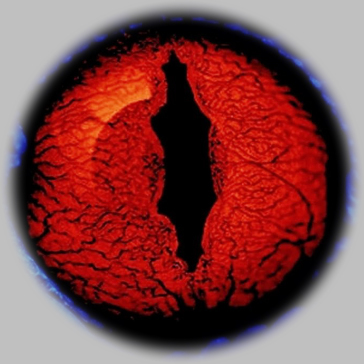 excerpt from The Narrung Sagas, Book I: The Journey of Shadow copyright Cage Dunn 2016.
excerpt from The Narrung Sagas, Book I: The Journey of Shadow copyright Cage Dunn 2016.
The picture wasn’t clear to Gheis, if it had any representation at all, but it was big. Shadow waved him to come over. He placed his pack on one side of Pax, and put Shadow’s on the other side so she wouldn’t fall over. He ran his hand down her face, caressed her cheek, opened one eyelid, looked deeply for any sign of damage or difference, and felt for a blood pulse at her throat. It was strong and steady. His hand lingered, spread over the back of her head, through her hair, felt for swelling or heat. She seemed okay, so he placed her gently back against the tree. He went back out into the sun to Shadow. It was hot; the early sun radiated the heat back from the rocks.
Shadow spread her arms to encompass the placement of the bones. He thought he heard her say ‘dragon’. Dragons didn’t exist. She was nuts. Dragons were only ever in tales, in myths, in the songs of the H’Rucca.
There were so many bones; definitely big. Bigger than any dinosaur bones that had ever been found in Narrung.
“I thought dragons were a legend,” Gheis said. “Is this a complete skeleton? It must have been real. It left a skeleton.” He slapped his hand over his mouth to stop the ramble of words that spilled out. He walked around the behemoth Shadow had created, put one bone close to another, watched as the bone pulled like a magnet, bound itself to the one beside it. He did it again, and the same thing happened.
“Look at this – if the bone belongs in that place, it holds to it. Put them together, Shadow, and see what happens!” He ran around, pushed the bones up against each other, and saw Shadow do the same. A small tremor in his hands – was it excitement or fear? But he couldn’t stop himself. He had to see.
It took some time, and when they finished, the bones were all connected and the standing skeleton was at least ten metiors tall and five times that long, including the tail. There was only one small space separated from the others. A small bone in the left front toe was missing. Gheis and Shadow both looked at that space, then at each other.
The talisman came free of its web of strings, and Shadow held it to the empty space. The pull of her one small bone, still in her hand, to the empty space, was more than it looked. She leaned with the strength of it, until the bone leapt from her hand to fill the empty section. The bones on either side melded to it, and the skeleton became whole. It shimmered, silver and white, silver and blue; the colours commingled, swirled around and through and between. The whole skeleton shook; ash-white filaments of light flashed.
The skull turned to face them. A thunderous roar shook the air as the bones of the mouth opened. Sound rumbled through the depression, surrounded them.
“It’s alive,” Shadow whispered.
“Could you not feel my life before?” The words seemed made of steel as they clashed into her mind like a sword fight. “Can you not hear my life?”
Shadow looked up. How had that happened? She had been standing; now she lay on the ground. Gheis knelt beside her, head wobbly on his neck; he held on like it might come loose.
“What do you want?” Shadow asked. The skeleton glistened with light. It became real, fleshed out. The Sheoak became a vague, translucent shape on the other side of the dragon. Shadow could see Pax through the body of the creature; only the bones blocked sight.
“Are you real?” Shadow whispered.
“I am as real as you and your friends are real. However, as you live on only one plane, are you real? If a thing exists in one space and time, is it any less real than a thing that can and does exist in more than one space and time?” The voice was not in her ears, it was in her head, and it was clear that Gheis could also hear the words.
“Please don’t kill us,” Gheis begged. He skittered backwards on his bum, slid away from both Shadow and the dragon. Shadow stood, reached out her right hand toward the dragon. She did not feel the dragon, nothing was solid. Her right hand disappeared into the shimmering ‘flesh’; her left hand fumbled for the talisman, found only the empty cage of string.
“If I kill you, I also kill myself, and all of my kind. I am not yet fully returned to life, though I am not dead – not yet. You will undertake a task for me, for us, and if you complete your task, you will be foremost in the hearts of dragons for eons to come. What I ask of you is most fearsome, most terrible, and you must say ‘Yes’ or all dragons from all times and all spaces will be diminished, relegated to no more than ghosts in the tales of worlds. Will you listen to my words?”
“Do we have a choice?” Shadow knew she would do whatever this creature asked of her. Her heart beat steadily, at a rate deeper and richer than ever before – aliveness came with this feeling. This creature opened her body and mind to a magic she could not just feel in the air around her and on her skin, she could breathe it, taste it, bathe in it. She wanted it – all of it; the promise, the task, the completeness she envisaged as she became whole with it.
“Are you using magic to make us want to do this?” Her voice sounded high as it drifted between them like puffy wisps of cloud. The air became solid, more difficult to breathe.
“You have a choice – we do not. You are the one we found, the seed of our recovery, and if you choose not to become all you can be, we will not force you, nor will we use our magic to influence you.” The air shimmered, gelatinous, as she continued. “What you are feeling, what you are seeing, is what you can be – your true self. You, also, are trapped into your half-life, and by the same . . . thing that trapped us. If you free us, you also free yourself to become as one with dragon magic – maybe more, if what I feel is genuine. You would unbind yourself from your limited human mind and body.” The voice became softer; a musical note of wind through the sheoaks, the slide of waves on the sand, the cascade of water over pebbles. “But there is another. You can choose; allow the other to take your place.”
Shadow looked up at the skull, outlined in scales of crystal, colours that reflected the light in a myriad of hues: salty green, ocean blue, foamy pink.
“How can we be sure of what you say?” she asked.
“I can bind my kind to the promise I make to you – I represent all dragons on this plane – by giving you my name. Do you want to be bound to me by knowing my name?” the dragon-shape replied.
“How would I, we, be bound to you by knowing your name?”
“As my name in your mind binds you to me, so it binds me to you. You have a ritual for bonding to a partner?”
“Yes, marriage; promises made from one to the other for life,” Shadow said.
“It is the same. A bond entered into for life; bound together in mind and body, soul and spirit, life and death, never to be broken. The gift goes both ways, protection of my secrets for the protection of yours. Do you want to be bound to me by my name?” she asked again.
“But even marriage can be undone – there are ways people can become unmarried.” Shadow felt for something she should say to protect herself. The foreignness in her mind drained her of the sense of logic.
“Is there more to it? Can the contract be broken? By you? By me? How would I know if you are only telling me what you think I should know?”
“I have been with you since you wore part of me close to your heart – you know my spirit – and I became part of you; I did not know this would happen, but we are already bound in spirit at least. My name would enable you to enter my mind and seek the truth for yourself. Do you want to know my name?”
“I will say ‘Yes’ with one condition: I want to see the truth of what you say. I want to see only whole truth – no deception, no half-truth. And I don’t want to lose myself.” She hadn’t meant to say that. “Can you agree to that?”
“You are wise to be cautious. I will give you one key,” she hummed a tune, a savage clash of tinny cymbals, “to hold in your mind all you do not wish me to see, and I will give you my solemn oath not to cause you harm, or to change anything that is not mine to change. I will not attempt to sway your mind, or own your thoughts. It is a contract. Will that do?”
Shadow nodded.
“I agree also. It is done. My name is . . .” a series of sounds, musical and loud, scales both harsh and soft; the music lilted and roared through Shadow’s mind. “As this name is not able to be spoken by you, you can call me Iranisa, but my name is the music, the song, the sounds. Open your mind to me and touch my shoulder.” The dragon moved closer, grew larger in front of Shadow. She reached out her right hand, and leaned it onto the now substantial shoulder of shimmery feathered scales.
With her eyes closed she hummed the name music. It brought her consciousness into another realm – the mind of a dragon. Pathways that wandered through a garden. Not a garden of plants – a garden of memories. She gazed at the moments in the dragon’s life. There were many things so foreign she could not believe they had ever been real. Maybe dragons had an imagination and a dream world too. Her mind travelled through trails of fire gardens, stone and gem gardens, and finally to a deep grotto. A place of meditation and peace. In the centre was a small yellow glow. When she came closer, she saw an egg, illuminated from within.
“This is you. Your song is here.” The music swirled and gathered colour, became a shape, a flower gem, blue, mauve, and pink striations that matched the music. “Your name is Iranisa,” Shadow whispered.
* * * Not the end.
Book II: A Dragon Dream is the current project, due out before end December.


October 31, 2016
The Other Side . . .
Of me. The one that goes a bit crazy when things go berserk. Like yesterday, when I discovered one of those creepy, crawly, eerily weird intruders on my composter (ooops, computer). It made me feel sick – why? It’s not a ‘real’ thing, just a bit of code sent out to do ‘bad’ stuff – not real, not real, not, not, not.
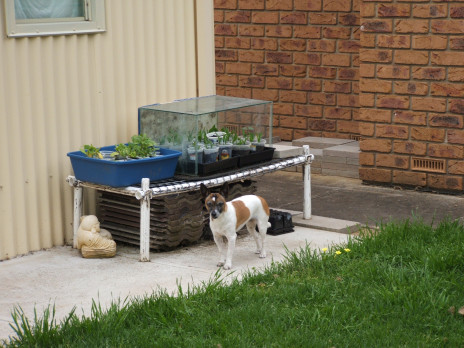
So why did I get a physical reaction as bad as finding a blood-sucking leech or patch of body-lice or [yecht!] some other creepy-crawly that wanted to do me physical harm?
And then (after putting in place the things that take bleep hours to do the job of seek and destroy) I lost my cool, was tempted to kick the composter (machine thing I can’t live without) or the door or . . .
Yep, the cranky critter emerged and ranted and carried on like a proverbial [bleep! bleep!] until I went outside to find something to vent with or through. And there it was – the trailer full of forest-fines mulch (supplied by the council) and now almost compost.
I’ve been avoiding this job because it’s heavy, takes a lot of time, is dusty and makes me sneeze, and my bones and joints ache for days (maybe into the double digit days) because of the arfer-itix (I call it how I like, and I like to make it into silly names so it has no real weight of fear in my world) that has blessed me with its presence for a few years.
So I pushed the trailer close to the area where I could access most of the dump locations, tipped it up so the dolly wheel was up in the air, and pushed the weight to the back. This is so I don’t have to reach/lean over into the trailer, or lean down under the top bar, or do any of the other silly bendy things that will cause the worst pain. Then I got out the triple-prong hoe, a big bucket, the furniture trolley (the tough one) and filled buckets, loaded the trolley, tipped the delicious smelling stuff in under the stone fruit trees, around the roses, up the high-line citrus trees, along the pathways down the side of the house where the violets go crazy. And I kept it up until the trailer was half empty.
A level of satisfaction came from the effort, and the cranky critter felt a measure of calmness. Time for a cuppa. Gloves off, hat off, kettle on. Check on the composter/computer.
Still working, only 7% after 3 hours. Cranky emerged slightly, but I shook her off and went back out (with the cuppa and the dog – who supervises from the sunny spot in front of the shed) and did more of the routine: bucket load, carry, empty – to the fruit trees in the front yard – pears, apples, olives, plums – the white sapote and guava are up on the high ground, and I can’t do that yet [maybe tomorrow]. Success – trailer 75% empty. Time for another cuppa. Gloves off, leave the hat on – no, shake the dust off, slide it onto the peg that’s now too high to reach without pain, whistle up the dog (who staggers past in the half-dazed sun-addled way dogs do) and we both head inside.
14%. Swear and curse and . . .
Run a bath. Turn on good music and ignore the issue of the serious editing work required. Ensure a notepad and pencil sit by the bath in case of ideas that pop up for the work required – that isn’t happening! Teeth grind, jaw clenches, mind teeters on the edge –
No. Time for some Hatha yoga. Calm, breathe, relax – there’s always tomorrow.
There is, isn’t there?
But what happens if I have to take the machine in to the fixer? How long can I live without it? What will it cost?
BTW – doing this post on a machine that is not mine, so the fight isn’t over yet.
And the backup – now done daily (since the last incursion of the enemy) and as a backup to the backup, I also email a copy of the latest version of the current project to a ‘safe’ source. And have it on a usb stick. Three forms of backup, done daily, should be enough, shouldn’t it?
Now, where can I borrow a machine – and be allowed to use it for up to ten hours a day? After I check it out for contagions!


October 29, 2016
The Things You see . . .
This time in the supermarket. I know, I know – a lot of strange things happen in the supermarket: young women singing and dancing and twirling the trolley like it’s the best looking man on the planet-partner; men who scritch and scratch and seem to have forgotten they’re still in their pj’s; that’s usual fare compared to what I saw this time.
A gentleman (although I do recall some shifty looks from a woman (or two) who might have been at the same task), in his fifties, somewhat chubby but not too much so, walks down the aisle with all the choccies and lollies. He looks over each shoulder, both ends of the aisle, shuffles closer to a particular item, does a double-take look over the shoulder, puts his hand down and touches it, caresses it, slides his hand over the silken wrapping, lifts it up, sniffs with his eyes closed – drops the item back in the shelf, does the surreptitious look up and down again before he goes through the same process. He makes love to the piece of shiny wrapped chocolate again and again. He concludes by leaning down and fondling and absorbing and stroking (and breathing in the aroma with mouth open like a cat) each piece of (his obviously favourite) chocolate.
Did he buy it? No!
Now I’ve seen kids do that, but they rip off the wrapper and eat it before their parent figure arrives with the firebrand words; I’ve seen girls do the sniff-test (they say for freshness – chocolate must be consumed fresh); and I’ve seen the toddlers already addicted to the smell and sight who scream to get it – but this man was in ecstasy for those few moments he had alone with his chocolate. Obviously now not allowed. Probably a health thing. And he didn’t fall. He didn’t do what some do.
What do they do?
Go to the shop on their own, buy it and either go home the long way while they consume it and hide the wrapper (it’s a fact!), or sit on the bench in the supermarket car park (the garden edge where the smokers go) to consume before getting rid of the evidence.
They don’t seem to realise that the smell stays with them – it’s a very strong, very distinctive smell. It’s as strong as the smell of cigarette smoke.
It’s the same type of addiction.
Some people love chocolate, some people like the occasional chocolate, some people don’t like chocolate – but some people are addicted and for them the torment and torture of so many of their items of destruction sit there in open view in a public place and . . . one can only dream . . .
or caress the chocolate when there’s no one else looking.
***
No link to Daily Post today; just thought I’d do the warm-up exercise to get ready for the writing day, and because I’ve missed a few days due to injuries, illness or other terms for pain, I’m just gonna get stuck right in! I hope you have a day where the sun shines and you see at least one thing that brings light to your life.


October 27, 2016
The Things We Do . . .
 To move forward often means we leave things behind. Some of those things are the result of the hormone rush of becoming a young adult human being. The numbers show that more than 85% of young teenagers go off the rails in one way or another (it’s probably higher, but . . .). So I’m not alone in some of the things I did when I was young and wild. Did I smoke? Yep. Just smokes? Nope (whether that’s true or not is a privacy issue – blat!).
To move forward often means we leave things behind. Some of those things are the result of the hormone rush of becoming a young adult human being. The numbers show that more than 85% of young teenagers go off the rails in one way or another (it’s probably higher, but . . .). So I’m not alone in some of the things I did when I was young and wild. Did I smoke? Yep. Just smokes? Nope (whether that’s true or not is a privacy issue – blat!).
And the result of that one stupid decision to front up to my peers with the tail of smoke to show how grown up I was?
Decades of addiction to the poisonous gases that emit from those shiny white sticks – that I willingly sucked into my lungs to burn and scar the delicate cilia with the job of clearing my air intake of impurities. Burned them off, scarred and damaged and destroyed – millions of them, just so I could ‘face up’ and have the right ‘look’ for the in-crowd.
I know now the result of peer pressure, the need to do the things that enable the ‘fit’ with the clique, the absolute desolation of being on the outer.
Because that’s where I always ended up – there was always something that excluded the person from this group or that group.
One thing I remember so well (we always remember the things with the powerful emotional blast, don’t we?).
Begin:
I met up with three friends and we decided to do something speccy (that’s ultra special, if you didn’t use it as a teenager, or you don’t know Aussie rules football). So we snuck into the pine forest and broke into the workers hut to steal (you guessed it) cigarettes.
But we didn’t smoke them right off. The ‘boss’ of the group decided it would be safer and better if we separated and met up again in a particular location. Of course, she took the smokes we stole.
And I turned up at the designated spot. And waited. And waited. And waited. Until it got dark (persistence is something that has stayed with me). When the time came to decide to move, I also decided to walk past the group’s boss house. Sure enough, they were all there, smoking on the front porch. They laughed and pointed, made words that cut and burned as bad as a lit cigarette on my skin – which is something they did as part of the initiation when I first met them.
End. The lesson was learned. That was the push that sent me on my way to being more solitary. But the smokes – that was a hook that kept its barb in my skin and psyche for decades; until very recently, in fact. I still dream about them (smokes, not the group). But I remember the group and the lesson and the cruelty that comes from clique of exclusion. Being wild is one thing, but cruelty simply for the sake of it is a sign of something much deeper, much worse, and I won’t be part of that.
***
And that’s the end of my warm-up exercise.
Today begins the serious business of first stage edit process for A Dragon Dream. I’m doing it differently this time: each scene is analysed for the following-
POV – where are they; location (thru POV); movement and action through sensory words; who is where; journey from begin to end – what changes? consequences/decisions/actions/not; what does the reader learn? Are the jigsaw pieces falling into the right places (the pieces in the right place to produce the bang and wrap)? What are the challenges to MC traits?
And after that, I’ll go back and check for dialogue and . . . . . . . another journey begins.


October 24, 2016
Past, Present, Future
. . . and so on.
Can we remember the past in an accurate and precise form? As it was, without the lisps of perception swaying the recall one way or the other?
Can we live the present without the lessons of the past or the fears, risks and hopes of the future?
Can we dream of a future that enfolds us in the manner in which we would prefer to be encumbered?
No, no, no.
Simple as that. Tiny flickers of memory become major elements of drama as we recall the pain or fear or [some other emotion] when we look back, or try to plan forward – and each of these elements creates the discourse of the current moment, the present.
Plan for the future, but do not look into the eyes of prescience, do not see into the soul of tomorrow – or it may disrupt the weave of your dreams simply because you peeked.
Remember the past, as in an eclectic collection of moments that held meaning because they held an emotional impact, not because they are/were a lesson in life.
Life lived in the moment (not like the daredevils who care not whether they live or die) is truly living. Sharing the smell of the freshly sprung growth of spring, the sound of bees to the ears of a child who hears the music of it; the pattern of sounds and smells and movement and emotions – these are the things that matter. Every smell induces a memory, every memory induces a chemical reaction in the body, every body has a link to every other body in the swirl of life around them.
Can science ‘see’ the past fully by taking away the emotional context? No. Why? Because if the person isn’t there, can they know (without any doubt or assumption) that it was this way or that way or did it exist in any shape different or alien to current knowledge?
We can’t go back, so we make educated guesses, assumptions based on other (earlier?) assumptions. These may all be wrong (it happens more than you think).
Science and knowledge and life are not static; things are in constant motion.
We do well to remember that, to keep one foot in motion against the other, to hobble and shuffle and jog and walk and run to the next moment – as long as our eyes and ears and nose are open to the things around us, so we can be part of it, experience it as if we were one of the wee ones, as if we were a child in the state of learning something astounding each day we wake.
So, open the eyes, awake.
The adage: Discourse creates and shapes perception.
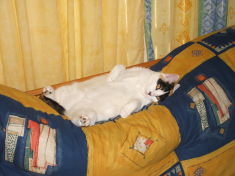
Wake up, Min-Min!


October 22, 2016
In Pursuit of . . .
What? Happiness? Love? Fulfilment?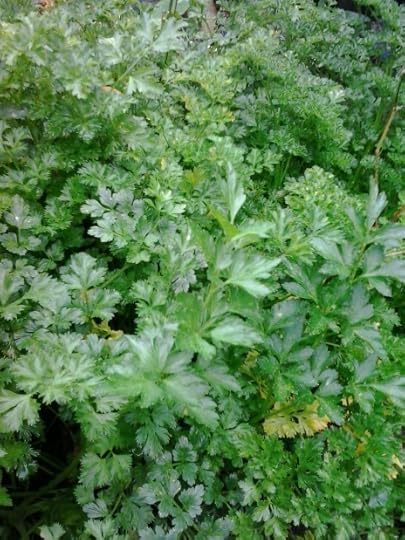
None of the above. I was always in pursuit of someone to help me either learn how to cook or cook for me. I love food.
It was this that had me offering, volunteering most weekends, to assist with the usual weekend things – BBQ’s, food gatherings, parties, all that sort of stuff.
Why?
I can’t cook. Ask any of the kids who lived with me as a foster. You want to know why they all learned to cook (almost all the teenaged fosters were placed in my care for the ‘independent living skills’ component of some government rule thing before they were allowed to undertake employment as a ‘real’ person) because if they had to live on what I cooked, they often preferred to eat tinned dog food. Not that they actually did eat it, but it would have tasted better, had better (what’s that word for how it all holds together – texture, right!), looked nicer, and caused less stomach problems.
That’s one way to get them to learn how to cook, right?
There’s a better way – have them in the kitchen of someone who enjoys what they’re doing, likes learning about it, and isn’t so desperate and impatient that some things are overcooked, some are half-cooked and some are completely unrecognisable. Seriously.
So, why can’t I cook? My excuse: my mother was/is a terrible cook. Her sisters were good cooks; her mother (nan) was a great cook (I learned my gardening from nan). What happened? I don’t know.
What I do know is that when I go into the kitchen, even the dog leaves the house (and that’s a very sad indictment, isn’t it?) and people have learned to stay away if I even mention I’ll be doing kitchen or cooking stuff.
They don’t say anything, but all of a sudden, they’re busy with this, that or the other. If there’s someone who doesn’t know, they rescue them with words like ‘Oh, named one, you said you’d be doing something with me that day, and the next day.’
I know the words, I know the signs (you know that look, with the eyes scrunched just the tiniest bit, the head shakes a miniscule ‘no’, the white-wall eyes scream warning.
Do I take offence? No, not at all. De facts is de facts. I can’t cook. I can eat, though, so if these people know my lack of culinary skills, why do they get offended when I ask if they can cook?
They do, you know? Do they think I’m going to suck the knowledge out of their heads and steal it away so it won’t be theirs anymore? Of course not! Why don’t they invite me to the afternoon foodie things anymore? What did I do?
Do you think it might have to do with the desperate looks, the drool when they talk about the things they have planned? The belly rub at the mere mention of a BBQ?
I could put the effort into learning how to cook, and there have been times I tried that – didn’t take. Some people learn things, even if they don’t have a passion for that thing, but the food thing slipped right by me.
The kids learned, and we ate well while they lived-in, but they’re gone, I’m still here, still dreaming (yes, very vivid dreams, smell and all) of all that wonderful, delicious, wafting essences of life and . . . oh, stop! Please. So cruel to the dying palate . . .
Once, a long time ago, I even considered the idea of finding a man who could cook, and marrying him. I met the cook, shared the house – and watched him create absolute chaos in the kitchen; every dish dirty and damaged; every lid, utensil, tool, knife – everything used and left in an ugly pile of detritus that covered the whole room – for the next person to clean up. Cooks don’t clean up after themselves, apparently.
I like my things to have a certain order, a structure, to be able to find the same thing in the same place each and every time I look for it. I like my pattern to be (loosely) woven on consistency and flow and ease.
The cook got booted. The kitchen returned to neat and tidy.
I turned to the raw-food vegan lifestyle (the fosters didn’t) because if I can’t cook, then maybe I should enjoy the stuff that doesn’t require cooking.
But cooking isn’t all about the application of heat, is it? I also couldn’t put together a good meal with the raw life – it takes as much effort and thought and purpose to create a good raw-food vegan meal as it does a non-raw non-vegan meal.
Woe is me – because I don’t think much of take-away, either (eyukkk! to most of them), and it’s also well beyond the current budget.
So, what do I do?
I focus on the few things I can do to some level of satisfaction. These get done regularly, and most of the time, I eat the raw food that comes from my garden – it will have to do, because no one is going to volunteer to be my cook, are they? Are you?


October 20, 2016
The Nights are Long . . .
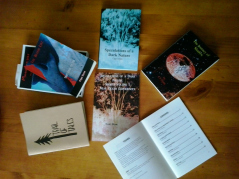 And full of not-sleep. Is it the pains that creep through the ancient body? Nah, not that old (although the aches try to show me different). Is it the thoughts and ideas that keep running through the mind about story? This is the time I take a surreptitious look around to see if anyone’s looking (you know, like when you don’t want anyone to see when you tell a whole truth and not the partially structured and more palatable part-truth) before I answer because it is often the case (too often) that the sleep that is supposed to happen while in bed, nice and warm and comfortable, instead turns to plot and conflict, arcs and structures, growth measures and better tactics for ‘show how it happens/feels’ and just plain playing with words until it comes out with the right emotional pressure or impact or power.
And full of not-sleep. Is it the pains that creep through the ancient body? Nah, not that old (although the aches try to show me different). Is it the thoughts and ideas that keep running through the mind about story? This is the time I take a surreptitious look around to see if anyone’s looking (you know, like when you don’t want anyone to see when you tell a whole truth and not the partially structured and more palatable part-truth) before I answer because it is often the case (too often) that the sleep that is supposed to happen while in bed, nice and warm and comfortable, instead turns to plot and conflict, arcs and structures, growth measures and better tactics for ‘show how it happens/feels’ and just plain playing with words until it comes out with the right emotional pressure or impact or power.
Or, better still, to new ideas, new characters who want to sing and dance in the sun, who want their moment in the front of the mind-sphere. I do love these plays, the scenes and characters who come out at night, play in the starlight and streetlights, who sing in tune to the prowlers outside the window (cats and foxes and possums, and occasionally a koala), who tempt and cajole, who want you to get up and write it down, who want you to come out to play with them in the darkness of dreams that could ‘change the world’ – their world, that is, not mine.
And I love it – I play along, sing along (in my mind – otherwise, the whole world would be sorry!) and I make promises. I will write it down in the morning, I will give you some solidity with words when I wake up to the new day.
Of course, I have to remember them to be able to put them into the real world, with real words, with the shape and patter of character and idioms and settings and colours and sounds and . . .
It means they have to work hard to make me remember; it means they don’t want to let me go off into the land of nod – I might forget! So they keep up the music, loud! They tempt with colours and sounds and smells and sensations of joy and terror and . . .
They fight to keep me awake long enough to remember them; I fight to keep them away long enough to fall asleep, at least for a couple of hours.
Who do you think will win?





